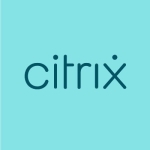What is our primary use case?
The solution is a hypervisor.
What is most valuable?
If you're looking at virtualization, it's probably the most stable virtualization platform that I have worked on.
VMware offers one of the most stable if not the most stable virtualization hypervisor.
The solution makes navigation very easy.
It makes migration very simple.
There is a lot of very impressive innovation happening within the product right now.
The integration capabilities are excellent.
We've found the product to be quite scalable.
The installation is quite straightforward.
You can do so much out of the box with their product, with their built-in technology. In vSphere, you can manage the hardware itself using the same platform.
What needs improvement?
The licensing costs for the solution are quite high.
For how long have I used the solution?
I've been using the solution for about seven years now. It's been a good amount of time.
What do I think about the stability of the solution?
The stability of the solution is excellent. There aren't any bugs or glitches. It doesn't crash or freeze. It's reliable.
What do I think about the scalability of the solution?
The scalability is very good. You can scale down or scale up provided you have the right licensing.
There aren't users on the solution per se. Our IT team is mainly involved with it. That's it. We have three engineers that manage it.
I'm not sure if we will expand this product. It depends on what might happen next as one of the things that we will be embarking on is HCI technology. VMware came into HCI, however, there are multiple vendors such as Dell or HPE. It depends on how everything turns out in terms of the IT strategy. They're not that cheap.
How are customer service and technical support?
I personally have never had to ask for support from VMware's technical team. In the last six to seven years, I have never had to directly ask VMware for anything. Therefore, I can't speak to how knowledgeable or responsive they are.
Which solution did I use previously and why did I switch?
Previously, we were using mainly the normal Windows hypervisor, Hyper-V. At my previous employer, we used to also have Xen hypervisor.
How was the initial setup?
The installation of the product is straightforward. It's really not too complex. All you do is install and click through. You put in your networking and you're done. Out of the box, it's great. However, if you do need to do some configurations, it can get a bit complex.
I did not handle the installation process myself, and therefore can't speak to the actual amount of time it took to deploy.
What's my experience with pricing, setup cost, and licensing?
One of the problems with the solution is the pricing. The licenses are not cheap.
We do pay a yearly licensing fee. Originally, it was a five-year package. Now we pay either every 12 or every 24 months.
If I have three hosts, just three hosts, a minimum of three hosts plus the vSphere and Center, I'm almost spending close to $250,000 a year. That's half a million in every two years inside just three hosts. In a serious medium enterprise where we would need at least 20 hosts, it means our annual fee or annual license cost could jump into the million-dollar range which means in three years you're spending three million alone on software.
What other advice do I have?
We're just customers and end-users.
I would recommend the solution to other organizations, so long as they've got the money. If you don't have the money you probably want to look at things that are open source. It's not a one size fits all kind of product. I say this because of the licenses. The amount of money you spend on licenses annually might be less somewhere else. For a medium enterprise, if you want a cross-platform sort of initial hypervisor I would say yes, VMware is a good option. Of course, there's always something better than VMware as well. For example, Nutanix is way ahead if you are a big enterprise.
Overall, I would rate the solution at a nine out of ten. If it was less expensive, it would basically be perfect.
Which deployment model are you using for this solution?
On-premises
Disclosure: I am a real user, and this review is based on my own experience and opinions.

















I agree with cchilderhose, that v6 has significant improved in the responsiveness. I currently am the VMware IT Academy (vITA) Coordinator/Instructor for our Community College: www.cccti.edu
We were invited in 2006 by VMware to assist in the development of the vITA program which means I started with in in v3.5.
We have been somewhat force to use the Web Client since we have to instruct others on how to use VMware "Features". When the Web client was first introduce even folks from within VMware did not have a lot of positive comments about it.
But no matter what we all get familiar with initially, change is change. With the vSphere Client you don't have to think about how to do something you just do it. When first using the Web client I always felt as if I were stumbling around to find how to get where I need to be to complete a task. Not good when you are trying to show others.
With the release of v6 and in particular update1, the web client operates much more responsively. In addition, now that I have been using it for 2yrs, it does not function the same as the vSphere client and I now have learned how to be more proficient.
In fact, during the last section of the ICMv6 course we just finished teaching, I actually felt I was better completing tasks than I am with the vSphere Client. I guess the comment here is: "Be patient grasshopper".
The other thing of note is that if you do tasks in the vSphere Client they do not always propagate correctly. For example in assignments of access control.
One question I have is, for those that are not interested in using PowerCLI or the Virtual Management Assistant (vma), how will you be able to manage a host directly? When the eliminate the vSphere client.
I like to make comparisons, something I do now since I have been in Higher Ed for near 20yrs now after being in industry 20yrs prior, is that if you give me an iPhone I will stumble around trying to make a call since I use an android.